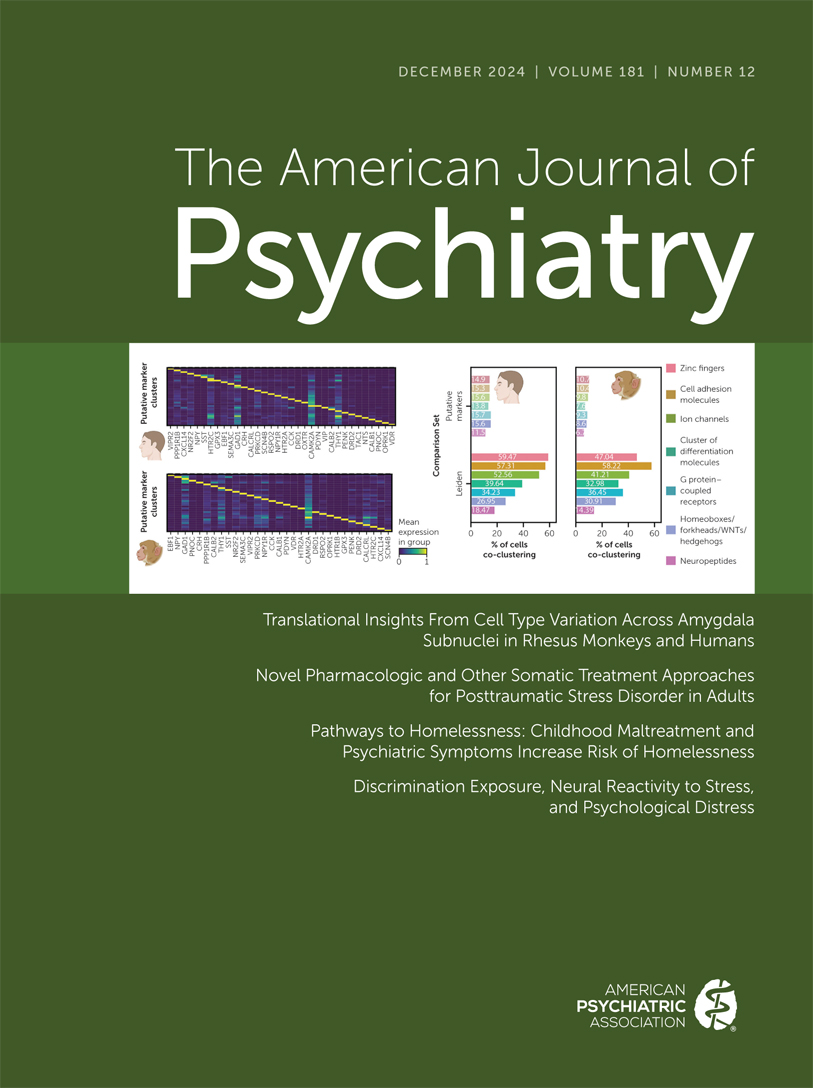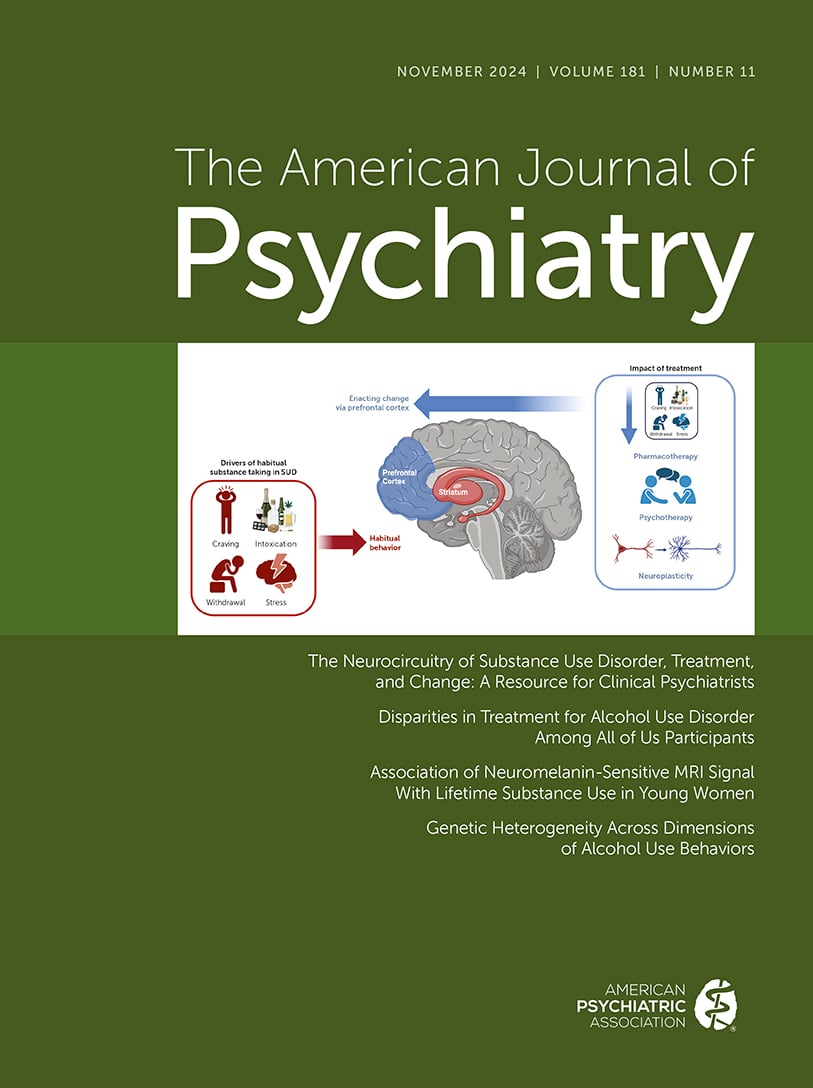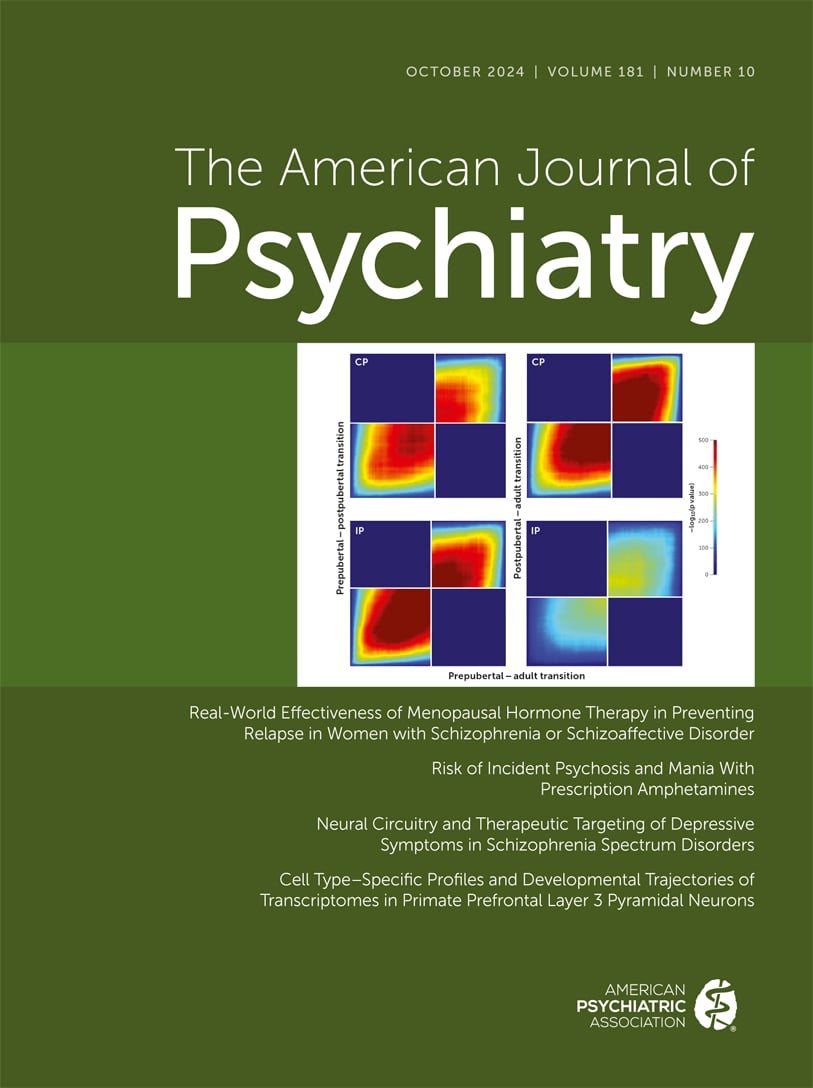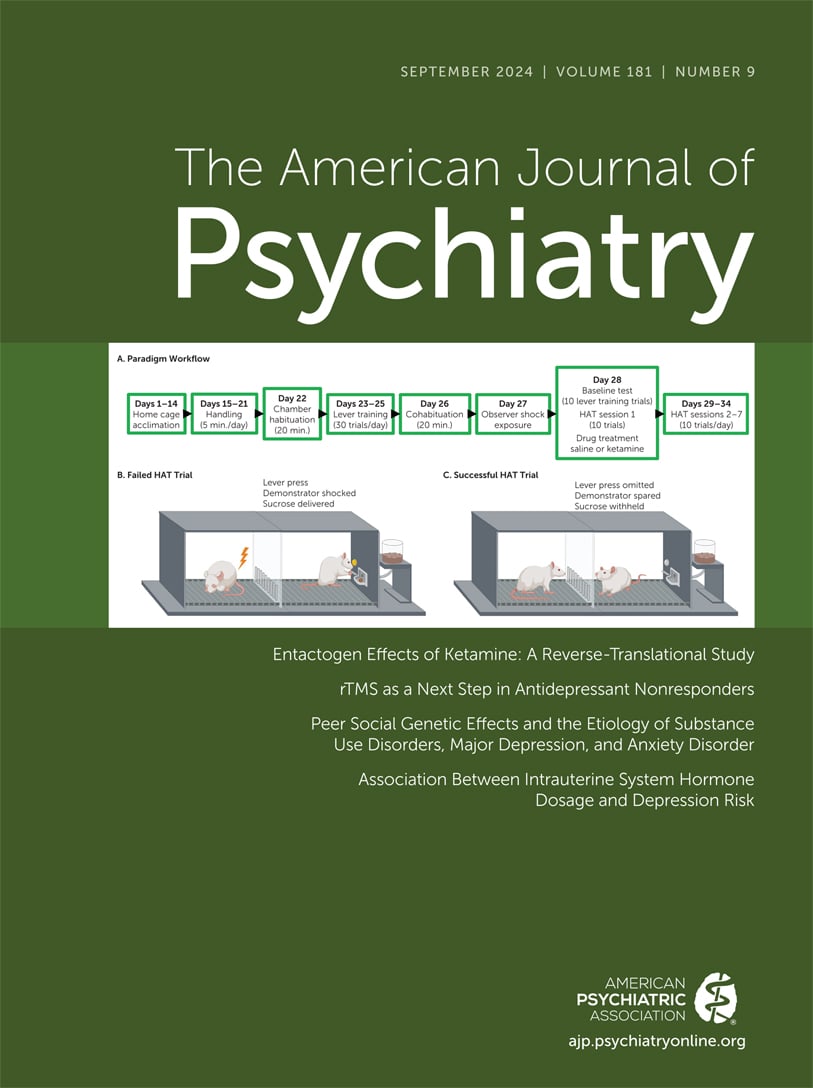American Journal of Psychiatry
- Volume 166
- Number 6
- June 2009
In This Issue
Editorial
Commentary
Introspections
Treatment in Psychiatry
Publication date: 01 June 2009
Pages653–661Traumatic brain injury (TBI) is a common occurrence with multiple possible neuropsychiatric sequelae, including problems with cognition, emotion, and behavior. While many individuals experience significant improvement over the first months following mild ...
https://doi.org/10.1176/appi.ajp.2009.08111676Images in Psychiatry
Reviews and Overviews
Publication date: 01 June 2009
Pages664–674Objective: Neuroimaging studies of healthy individuals inform us about the normative maturation of the frontostriatal circuits that subserve self-regulatory control processes. Findings from these studies can be used as a reference frame against ...
https://doi.org/10.1176/appi.ajp.2009.08091354Article
Publication date: 01 June 2009
Pages675–682Objective: Cognitive impairment, manifested as mild to moderate deviations from psychometric norms, is present in many but not all schizophrenia patients. The purpose of the present study was to compare the effect of haloperidol with that of ...
https://doi.org/10.1176/appi.ajp.2008.08060806Publication date: 01 June 2009
Pages683–690Objective: Executive dysfunction is one of the most prominent and functionally important cognitive deficits in schizophrenia. Although strong associations have been identified between executive impairments and structural and functional ...
https://doi.org/10.1176/appi.ajp.2008.08010089Publication date: 01 June 2009
Pages691–701Objective: The authors compared paliperidone extended-release and quetiapine in patients with recently exacerbated schizophrenia requiring hospitalization. Method: In a 6-week double-blind study, inpatients with a recent ...
https://doi.org/10.1176/appi.ajp.2009.08040613Publication date: 01 June 2009
Pages702–710Objective: Major depressive disorder is characterized by impaired reward processing, possibly due to dysfunction in the basal ganglia. However, few neuroimaging studies of depression have distinguished between anticipatory and consummatory ...
https://doi.org/10.1176/appi.ajp.2008.08081201Publication date: 01 June 2009
Pages711–717Objective: Endophenotypes, markers of underlying liability to psychiatric disorders, can improve the power to detect genetic risks relative to a complex clinical endpoint. Motor response inhibition is a prime candidate endophenotype in ADHD. In ...
https://doi.org/10.1176/appi.ajp.2009.08040621Publication date: 01 June 2009
Pages718–725Objective: Lithium remains a first-line treatment for bipolar disorder, but the mechanisms by which it prevents the recurrence of mood episodes are not known. The authors utilized data from a genomewide association study to examine associations ...
https://doi.org/10.1176/appi.ajp.2009.08111633Letters to the Editor
Correction
Book Forum
Books Received
Past Issues
View Issues Archive
Vol. 181 | No. 12

Vol. 181 | No. 11

Vol. 181 | No. 10
